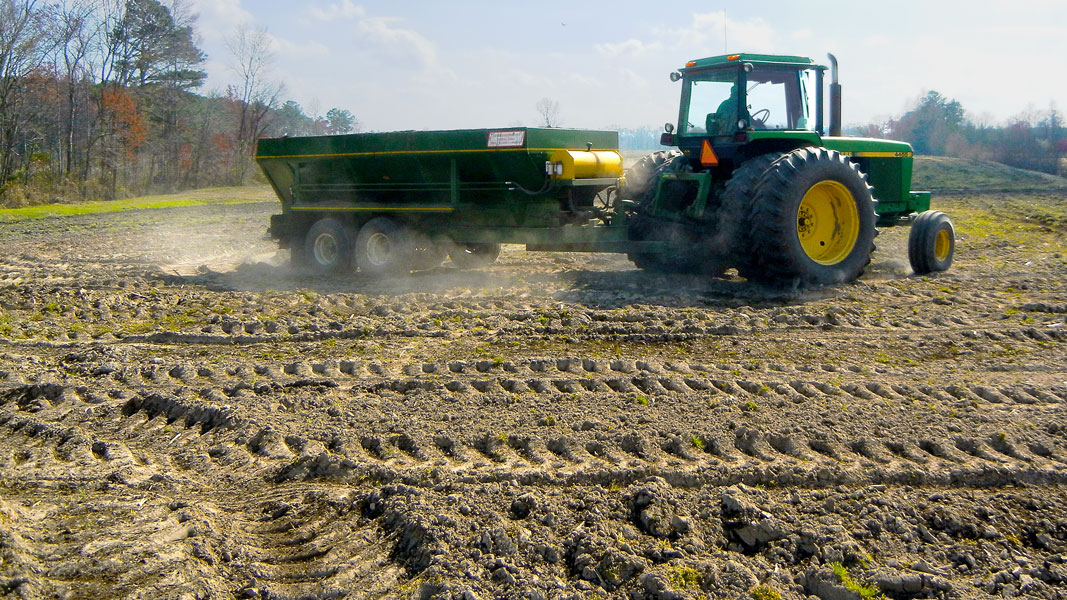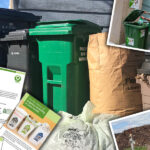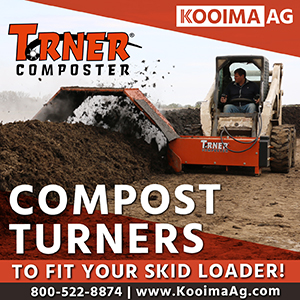Top: Spreading compost on a farm in North Carolina. Photo courtesy McGill Environmental Systems
The North Carolina General Assembly approved exemption of compost sales from the state’s sales and use taxes to qualifying North Carolina farmers who use the compost primarily in farming operations. The exemption became effective in October 2023. The North Carolina Farm Act of 2023, Sec. 1.4: Exempt Compost from Sales Tax for Qualifying Farmers, defines a qualifying farmer as a person with an annual income from farming operations for the preceding taxable year of $10,000 or more or who has an average annual income from farming operations for the three preceding taxable years of $10,000 or more. Compost was added to a list of farm purchases that includes commercial fertilizer, lime, and potting soil. The NC Compost Council helped initiate the legislation to increase use of compost in agriculture in North Carolina. “Passage of the sales tax-exempt provision will help provide more incentive for farmers to purchase compost and reap the many benefits of compost use,” said Gary Gittere with McGill Compost in an article in the state Agriculture Department’s newsletter, Agricultural Review. “Working on tight margins, eliminating the sales tax for purchasing compost will help improve both their profit margins and their soils.” Dairy, poultry, livestock and crop farmers, as well as horse farms and aquaculture operations, are among the qualifying farm types. Eligible farmers can apply to the Secretary of Agriculture and Consumer Services for an exemption certificate number.













